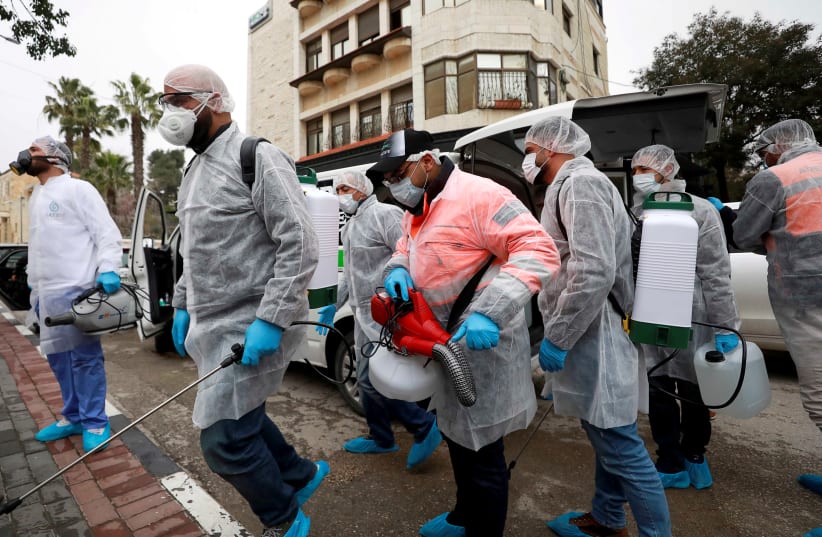As of Thursday, there were 4,450 active cases of COVID-19 in the West Bank – and a total of 126,786 cases since the outbreak of the virus in March. So far, there have been 1,473 deaths.
The current percentage of positive tests in the West Bank is 11.2% – a figure considered to be high. By comparison, the current rate in Israel is 9.25%.
Analyzing these details, the defense minister has to assess whether to allow the workers in.
The income made by Palestinians working in Israel makes up around 30% of the Palestinian economy. Some 80,000 Palestinian hold permanent licenses to enter Israel for employment purposes.
In light of the significance of this sector, and in order to assist the IDF efforts to keep the relatively calm situation, COGAT decided to allow the entrance of workers, under certain restrictions.
Earlier this month, the Defense Ministry decided that workers in the construction and agriculture fields will be allowed in but will have to stay in Israel during the entire lockdown, and will not be allowed to go back to the West Bank. Among the 80,000 total workers, some 60,000 work in these fields, and some 40,000 work in these sectors.
In addition, Israel allows another 15,000 workers to enter workplaces that are considered essential. These workers are allowed to go back to their homes at the end of the day.
COGAT stressed that in order to keep the situation calm – and to keep a low level of the disease – it works closely with the Palestinian Authority and gives it tools to handle the spread of the virus.
“With the outbreak of COVID-19 in Israel, Judea and Samaria and the Gaza Strip, COGAT, in cooperation with the Palestinian Authority, initiated a wide range of activities to stop, to the extent possible, the spread of the virus,” a source in COGAT said.
“As part of these activities, the entry of test kits for detection of COVID-19, along with ventilators and medical equipment, donated by the international community, was coordinated by COGAT.
“Moreover, joint training of Israeli-Palestinian medical teams took place, out of the understanding that these measures are necessary for the common interest of protecting the health of all of the residents of the entire region,” the source added.
